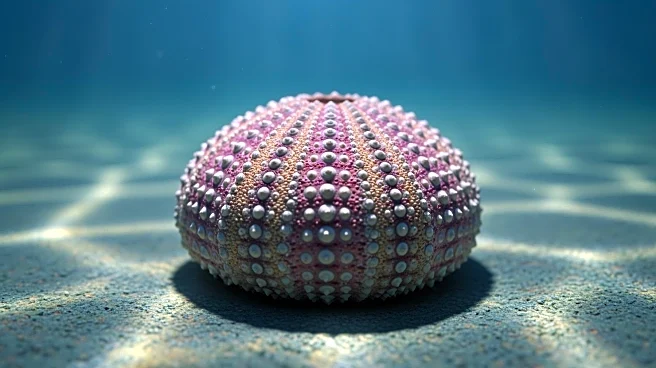What's Happening?
Recent research has revealed that sea urchins possess a complex nervous system that functions as an 'all-body brain.' Previously thought to have a primitive nerve net, sea urchins are now understood to have neurons distributed throughout their bodies,
allowing them to process information without a centralized brain. This discovery was made by an international team of researchers, including marine biologist Periklis Paganos and molecular biologist Jack Ullrich-Lüter, who analyzed gene expression in sea urchins. The study found that sea urchins express genes similar to those found in vertebrate central nervous systems, and their bodies are covered in light-sensitive cells, enabling them to detect light without eyes.
Why It's Important?
This discovery challenges previous assumptions about the complexity of echinoderm nervous systems and highlights the unique evolutionary adaptations of sea urchins. Understanding the 'all-body brain' of sea urchins could have implications for neuroscience and evolutionary biology, offering insights into how decentralized nervous systems can function effectively. This research may also influence the study of other echinoderms and contribute to broader discussions on the diversity of life forms and their adaptations.
















